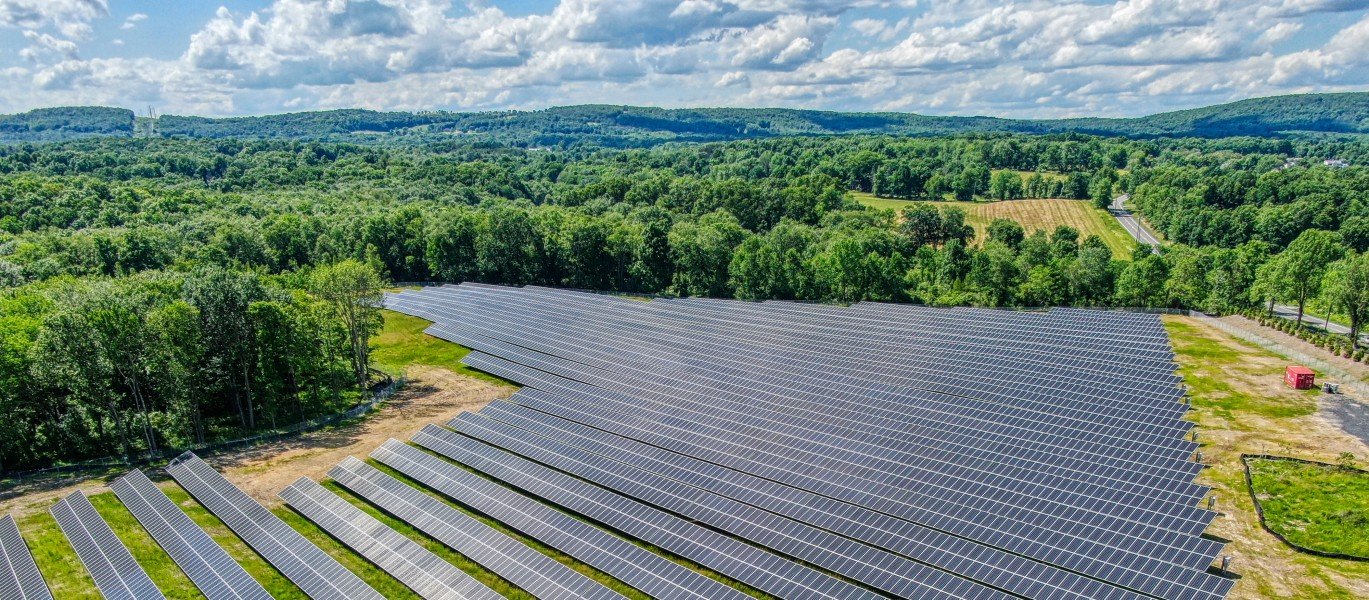
January 15th, 2021 — In a country grappling with structural inequalities and the ongoing presence of systemic racism, the clean energy sector is no exception. While favorable policies and declining costs have enabled a boom in the residential solar market over the past 10 years, the beneficiaries of this incredible growth have not been distributed equally across class, race, or geography.
Today, 77% of American households cannot access rooftop solar. One-third of Americans rent or live in a shared property; millions more cannot access financing or afford the upfront cost of rooftop solar; and still more live on properties with structural barriers. Majority black neighborhoods are 74% less likely to have solar installed than majority white neighborhoods, and almost 50% of black households live in an area with no solar installation at all.
Over the past five years, community solar has emerged as an accessible alternative to rooftop solar, allowing a much broader set of households to join local, smaller (under 5MW) solar projects and gain access to cheaper, cleaner power for the first time.
Solstice expands the market for community solar and puts affordable clean energy within reach of every American. By working with solar developers to quickly access and enroll new households through an innovative software platform that recruits and manages customers for the life of the solar project, Solstice streamlines a costly and time-consuming aspect of community solar deployment. The company is also expanding access to solar for low-to-moderate income Americans through their patent-pending EnergyScore, an alternative credit score used to qualify many more households for community solar compared to the industry standard of FICO credit scores.
The Community Solar Market is Rapidly Expanding
The community solar market has doubled in size almost every year since 2015, due largely to consumer demand, newly adopted state-level policies, and profitable developer economics. The recent flurry of ambitious statewide renewable energy targets will almost certainly expand the market for community solar, especially in the Northeastern states, where open land for larger utility-scale projects is scarce.
In a typical community solar project, customers buy shares or sign up with a project developer. After the project is built, community solar customers receive a credit on their monthly utility bill. Unlike rooftop solar, community solar does not depend on a household’s ability to install solar on their home or secure financing, and unlike utility-scale projects, it is faster to permit, site, and interconnect. Greentech Media estimates that the community solar market will grow to more than $81B by 2030, assuming favorable policies, with a total addressable market of $10B for customer acquisition and management.
Despite the market’s momentum, barriers still exist, and customer acquisition and management remains a key challenge for the sector. Project developers are often uninterested in or lack resources to create their own customer-facing software, and utilities have historically struggled with customer engagement, especially for low-to-moderate income households. Traditional methods of customer enrollment, like mailers or cold-calling, suffer from very low conversion rates, with online-only conversion rates faring only marginally better.
Solstice’s pioneering customer acquisition and service platform combines the founding team’s experience as community organizers with a sophisticated software platform to fuel the growth of the community solar market.
Solstice Addresses Key Barriers to Customer Acquisition and Equity in Community Solar
Solstice provides developers with a reliable, scalable, and affordable option to fill community-solar projects. Solstice’s customer acquisition model uses network effects within communities to reduce customer acquisition cost, while their customer management analytics help developers understand project economics and comply with regulatory requirements.
For residential households, Solstice serves as a trusted brand to save on electricity bills and sign up for community solar in just 5 minutes. Solstice’s software platform also allows customers to earn additional income by spreading the word to peers or via community organizations, such as NGOs and religious organizations.
Solstice is also creating a more equitable community solar market through their EnergyScore, a proprietary underwriting standard based on their data science partnerships with the Department of Energy and MIT. EnergyScore is more accurate in predicting utility bill payment behavior and more inclusive of low-income Americans compared to industry standard FICO credit scores. Through their consumer-facing platform and EnergyScore, Solstice is uniquely and strategically situated to expand access to community solar for low-income and disadvantaged communities.
Powerhouse Ventures Invests in Solstice
Powerhouse Ventures invested in Solstice’s oversubscribed seed extension round, alongside Total Carbon Neutrality Ventures, the American Family Insurance Institute for Corporate and Social Impact, Schneider Electric Ventures, MassCEC, SustainVC, Active Impact Investment, Next Wave Impact, Gratitude Railroad, and Halcyon.
Solstice’s innovative software platform, effective customer acquisition and management approaches, and notable traction position the company to expand its share of the rapidly growing community solar market. We look forward to working with Co-Founder & CEO Steph Speirs, Co-Founder & COO Sandhya Murali, and the entire Solstice team to enable affordable clean energy access for every American.
Special thanks to Marie Thompson, Rohit Gawande, and Ry Storey-Fisher.
To read more about Powerhouse Ventures’ other publicly-announced investments, visit our Insights page.
